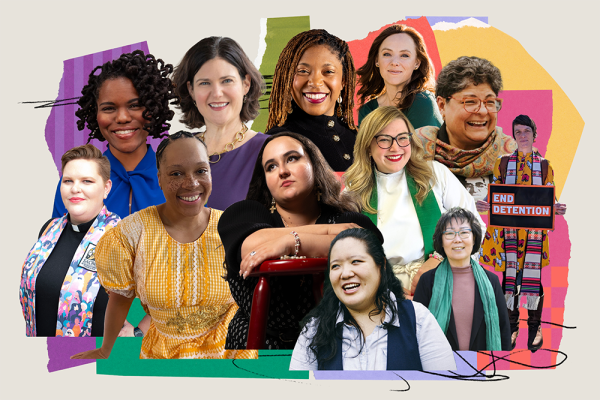This time last year, Marjory Stoneman Douglas was not a household name — at least outside of Florida. Students in the Sunshine State learned about the prolific 20th-century author, journalist, and activist in history classes. But beyond the borders of her home state, Douglas was just one more powerful woman on track to be tragically overlooked by history.
That changed on Feb. 14, 2018, when a former student named Nikolas Cruz opened fire on Marjory Stoneman Douglas High School in Parkland, Fla. — killing 17 people and wounding 34 others. Suddenly, like far too many schools before it, Stoneman Douglas was all over the news. Early media reports centered on the horrific act of violence, and then on responses from various activist groups and politicians. But within days of the shooting, the story of Marjory Stoneman Douglas High School became the story of a group of students who refused to be silent in the face of their own trauma, and teenagers who became vocal, nationally recognized advocates for gun law reform.
In the midst of an inspiring swell of student activism, a meme cropped up on social media. It featured a grainy, black-and-white photo of an elderly Marjory Stoneman Douglas, along with this (slightly edited) quote:
“Be a nuisance where it counts; do your part to inform and stimulate the public to join your action. Be depressed, discouraged, and disappointed at failure and the disheartening effects of ignorance, greed, corruption and bad politics — but never give up.”
Be a nuisance where it counts -Marjory Stoneman Douglas. pic.twitter.com/RZLVmHgBw2
— Roxy (@JeepMujer) February 25, 2018
It seems the vocal students of Stoneman Douglas are following in the footsteps of their school’s namesake. Marjory Stoneman Douglas was born in 1890 and died in 1998 at 108 years old, just a few years before the oldest of these new student activists were born. Born in Minnesota, Douglas moved to Miami after graduating from Wellesley in 1912. There she worked as a journalist for what would later become the Miami Herald. Over the course of her career, Douglas wrote countless books and short stories, fiction and nonfiction, that focused on the experiences of women, life in south Florida, and environmentalism.
Marjory Stoneman Douglas campaigned for improved housing conditions and aid for babies and their parents in need. She was outspoken in support of women’s suffrage and later of the civil rights movement. But she was most well-known for her environmental advocacy, especially for her efforts toward the protection of the Florida Everglades. Douglas’ most famous work is a book called The Everglades: River of Grass. Published in 1947, it played a crucial role in shifting public perspective on the Everglades in favor of its preservation and restoration. Her efforts in this regard — which lasted nearly her entire life — earned her the nickname “Grande Dame of the Everglades.”
Stoneman Douglas earned a high school named for her in 1990, and a Presidential Medal of Freedom from President Bill Clinton in 1993. She also lived to see some of the fruits of her labor: In 1996, just two years before her death, Florida passed a constitutional amendment that held polluters primarily responsible for restoring the Everglades.
Marjory Stoneman Douglas set an astonishing example over the course of her life of the power that one dedicated voice can have. With her words and her actions, she fought for a better world for women, for people of color, for those living in poverty, and for the earth itself. We all — not just Floridians — inhabit a world made better by her.
While she would no doubt have been horrified by the violence that unfolded at Marjory Stoneman Douglas High School in February, the real Marjory would just as surely be proud of the students following in her legacy in the halls of the school that bears her name. Students like Emma Gonzalez and Sarah Chadwick — young women who, just as Marjory Stoneman Douglas once did, have refused to be silenced, overlooked, or dismissed. Under Marjory Stoneman Douglas’ name, another generation is harnessing the power of their own voices to cry out for a better world.
Got something to say about what you're reading? We value your feedback!







